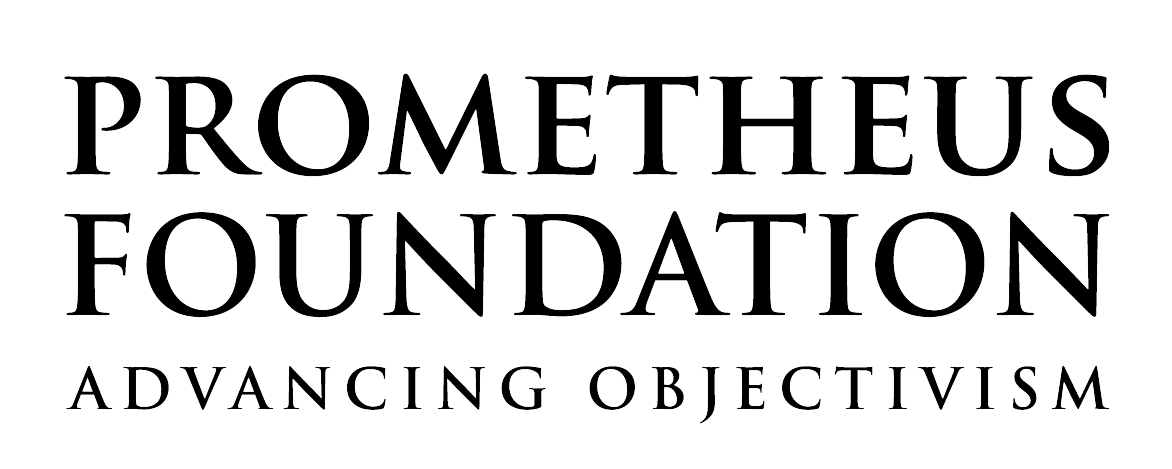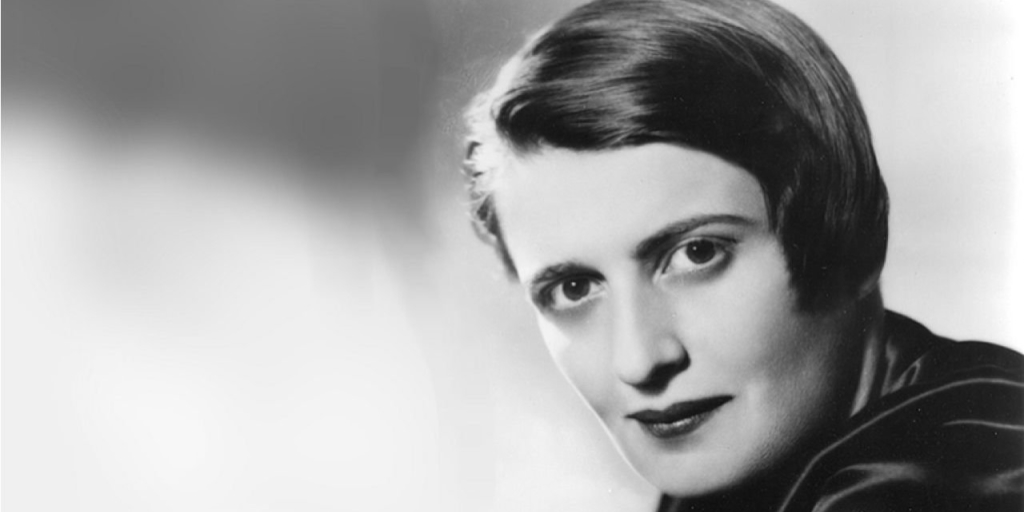Books by Ayn Rand and Leonard Peikoff
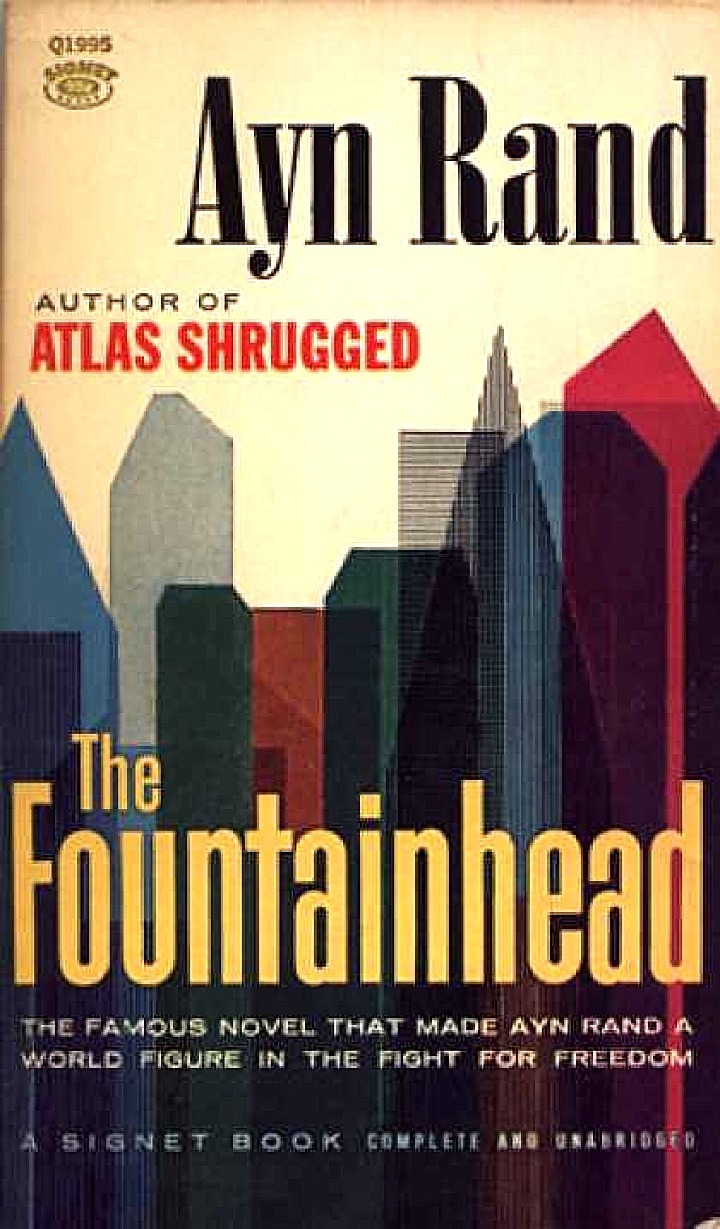
The Fountainhead
by Ayn Rand
The Fountainhead (1943) is the story of Howard Roark—an independent thinker, architect, and innovator, who refuses ever to compromise his principles—and his battle against the collectivist, tradition-oriented, authority-worshiping status quo. Its theme is “individualism versus collectivism, not in politics, but in man’s soul.”
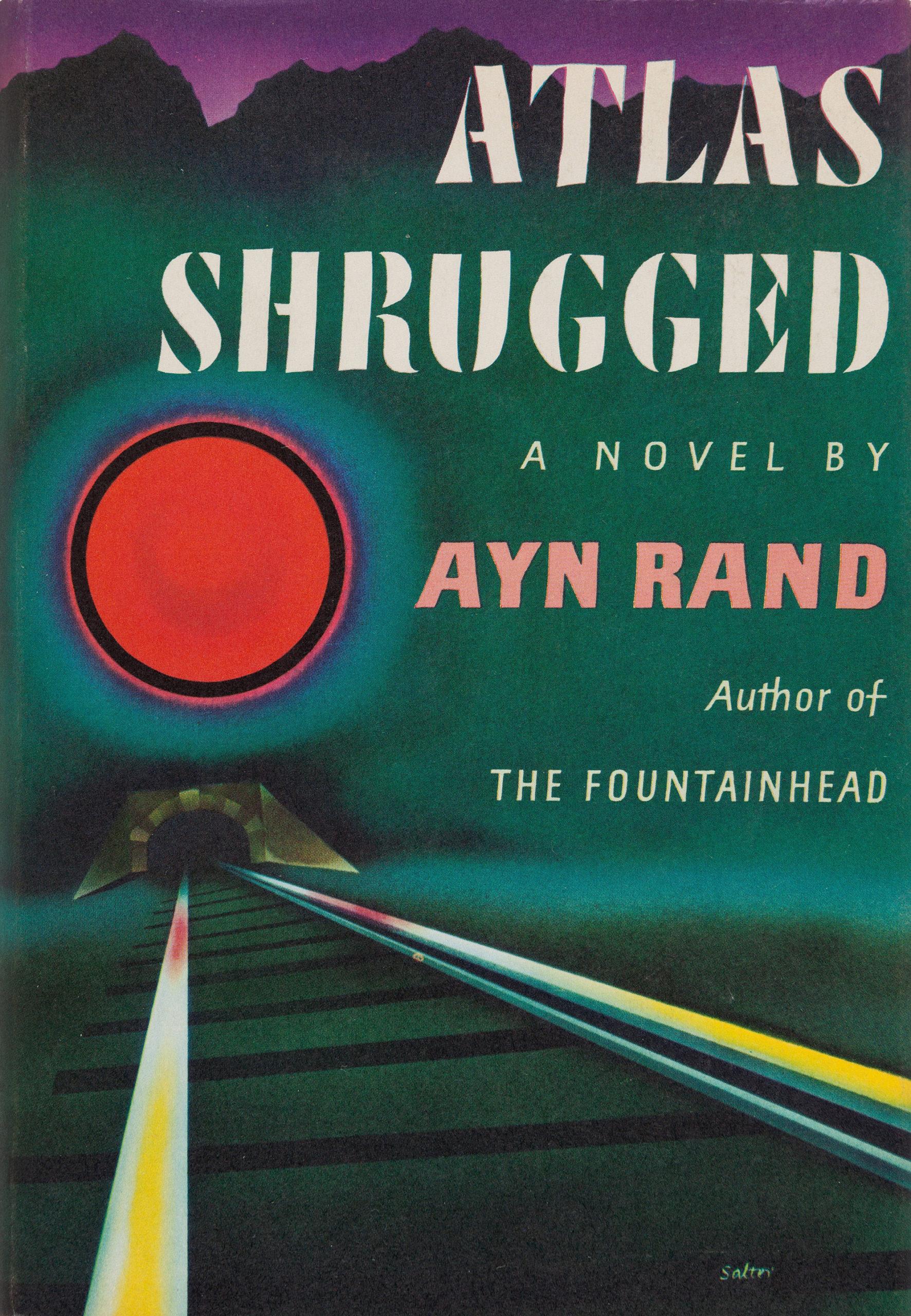
Atlas Shrugged
by Ayn Rand
Atlas Shrugged (1957) is a deeply philosophic suspense novel about the role of the mind in human life, and about what happens to the world when the thinkers and producers disappear. Its theme is “the role of the mind in man’s existence—and, as corollary, the demonstration of a new moral philosophy: the morality of rational self-interest.”
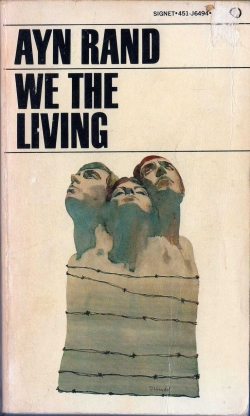
We the Living
by Ayn Rand
We the Living (1936) is Rand’s first and most autobiographical novel. Set in Soviet Russia, its theme is “the supreme value of a human life and the evil of the totalitarian state that claims the right to sacrifice it.”
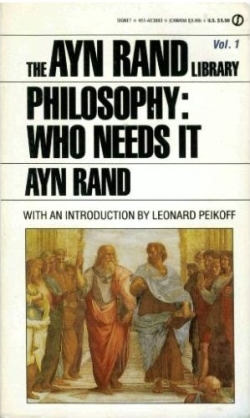
Philosophy: Who Needs It
by Ayn Rand
Philosophy: Who Needs It (1982) is a collection of essays about the life-and-death importance of philosophy, and of studying the subject with a purposeful approach. Themes include the inescapability of philosophy, the art of philosophical detection, the metaphysical versus the man-made, and the difference between being a “disciple of causation” and being a “disciple of duty.”
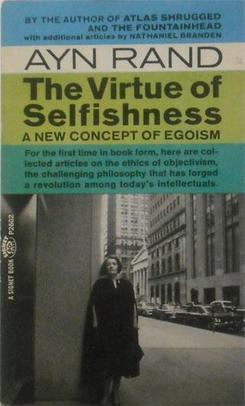
The Virtue of Selfishness
by Ayn Rand
The Virtue of Selfishness (1964) is a collection of essays elaborating the foundations and principles of Rand’s morality of rational self-interest, as well as their implications for personal, social, and political matters.
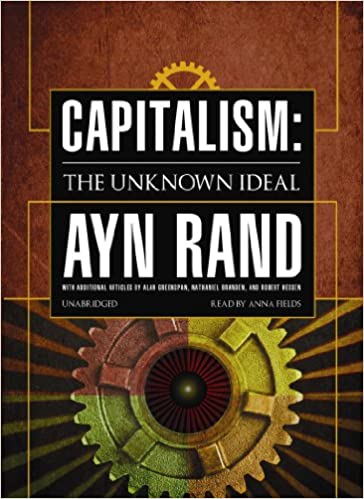
Capitalism: The Unknown Ideal
by Ayn Rand
Capitalism: The Unknown Ideal (1966) is a collection of essays laying out what everyone should be (but rarely is) taught in school about capitalism. Rand shows that capitalism is the only social system based on and consistent with the requirements of human life, the virtues of productiveness and justice, the principle of individual rights, and the harmony of rational men’s interests.
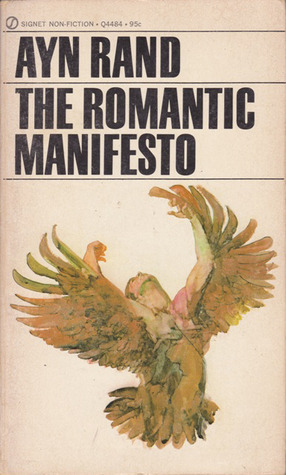
The Romantic Manifesto
by Ayn Rand
The Romantic Manifesto (1969) is a series of essays on Rand’s theory of art, including its definition, its purpose in human life, and the objective standards for judging works of art.
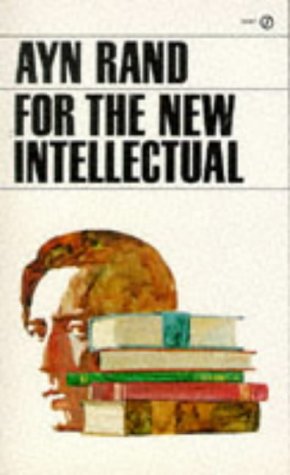
For the New Intellectual
by Ayn Rand
For the New Intellectual (1961) includes both a lengthy title essay and the main philosophic passages from Rand’s novels. The title essay, “For the New Intellectual,” is a rich survey of the history of philosophic thought, showing how and why ideas are the fundamental driving force of history, and what this means for anyone who wants to engage in intellectual pursuits. (The passages from Rand’s novels included in this book contain spoilers; we recommend avoiding them until you’ve read the novels.)
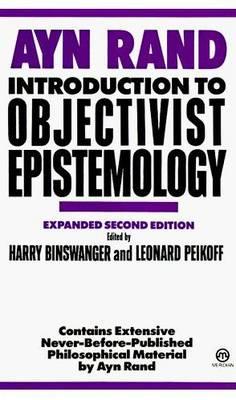
Introduction to Objectivist Epistemology
by Ayn Rand
Introduction to Objectivist Epistemology (1966–1967—republished in 1979 as an expanded edition, with excerpts from Rand’s workshops on epistemology) presents Rand’s theory of concepts, her solution to the “problem of universals,” and the ultimate foundation for her philosophy and for conceptual knowledge as such.
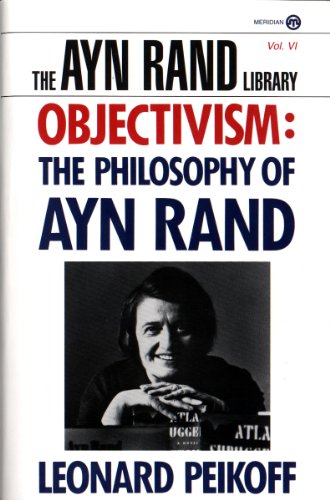
Objectivism: The Philosophy of Ayn Rand
by Leonard Peikoff
Objectivism: The Philosophy of Ayn Rand, by Leonard Peikoff, is a systematic, hierarchical presentation of Rand’s philosophy, based on Peikoff’s course on the subject, which Rand endorsed.

Anthem
by Ayn Rand
Anthem (1938) is a novella set in a future society so steeped in collectivism that the word “I” and all singular pronouns have vanished from its language. The story depicts the gradual rediscovery and recovery of the word “I” by a man who chooses relentlessly to think. Its theme is “the meaning of man’s ego.”
The Ayn Rand Lexicon: Objectivism from A to Z
Edited by Harry Binswanger
The Ayn Rand Lexicon: Objectivism from A to Z (1986), edited by Harry Binswanger, is a mini-encyclopedia of Objectivism, with select passages from Rand and her associates on 400 alphabetized topics in philosophy and related fields, from “Abortion” to “Zero, Reification of.” This is a great resource for quickly identifying the essence of the Objectivist position on various subjects.
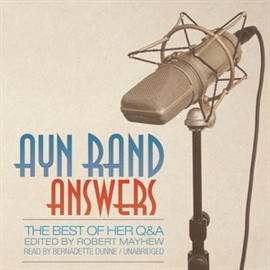
Ayn Rand Answers: The Best of Her Q&A
Edited by Robert Mayhew
After the publication of Atlas Shrugged in 1957, Ayn Rand occasionally lectured in order to bring her philosophy of Objectivism to a wider audience and apply it to current cultural and political issues. The question-and-answer sessions that followed added an eloquent new dimension to Ayn Rand’s system of thought, while providing fresh and spontaneous insights into Ayn Rand herself. Never before available in print, this is a collection of those enlightening Q&As.
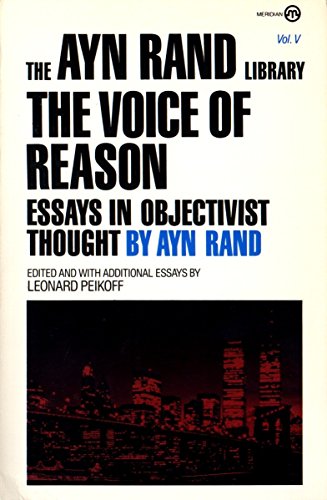
The Voice of Reason: Essays in Objectivist Thought
by Ayn Rand and Leonard Peikoff
Written in the last decades of Rand’s life, these pieces—with topics as varied as education, medicine, Vietnam, and the death of Marilyn Monroe—reflect a life lived on principle, a probing mind, and a passionate intensity. Five essays by Leonard Peikoff are included, among them his epilogue, “My Thirty Years with Ayn Rand: An Intellectual Memoir.” This collection communicates not only Rand’s singular worldview, but also the penetrating cultural and political analysis to which it gives rise.
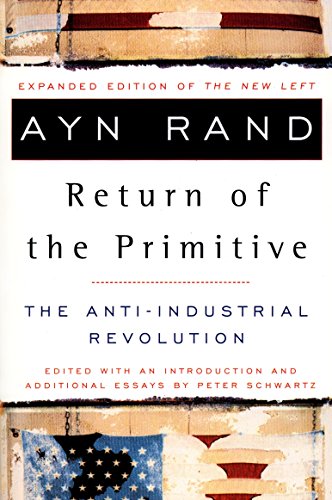
Return of the Primitive: The Anti-Industrial Revolution
by Ayn Rand and Peter Schwartz
In the 1960s and early ’70s, the New Left was a prominent and vocal cultural movement that condemned America and everything it stood for, bringing about vast cultural changes that remain with us to this day. In her essays from this period, Ayn Rand identified the essential evils of the New Left and their cause, and revealed the movement’s “rebels” to be dutiful, consistent practitioners of the ideas taught them by their teachers. Return of the Primitive is an expanded edition of Rand’s The New Left: The Anti-Industrial Revolution, featuring the entire contents of the original book, her essays “Racism” and “Global Balkanization,” and three essays written by Peter Schwartz after Rand’s death that analyze ideologies the New Left helped spawn, including multiculturalism and environmentalism.
